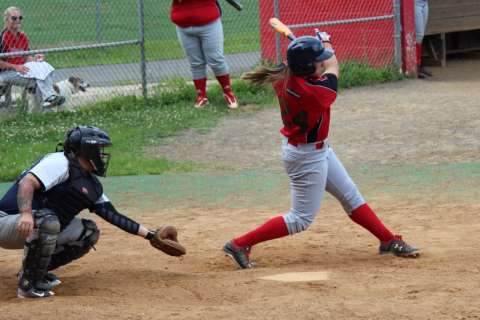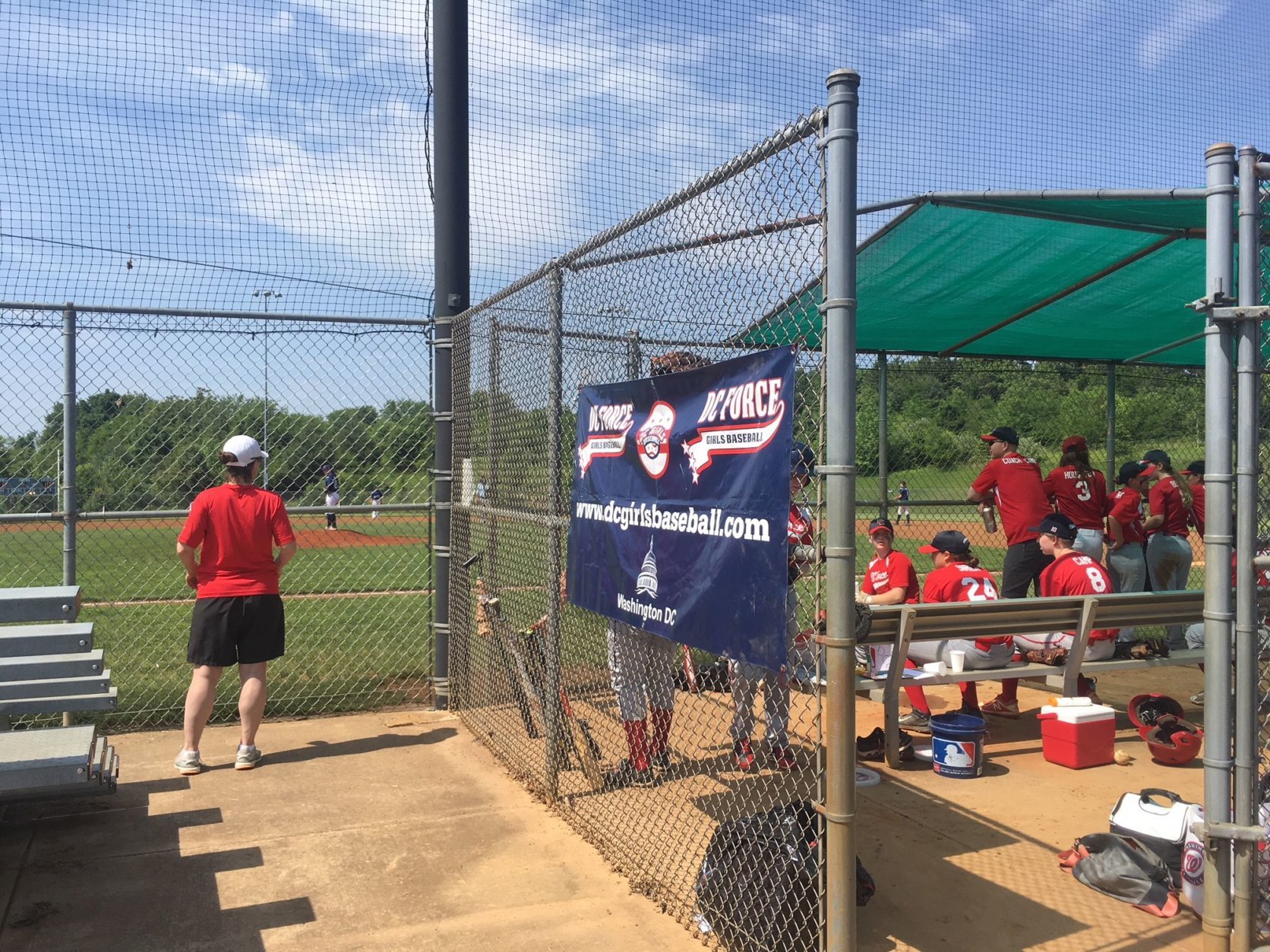
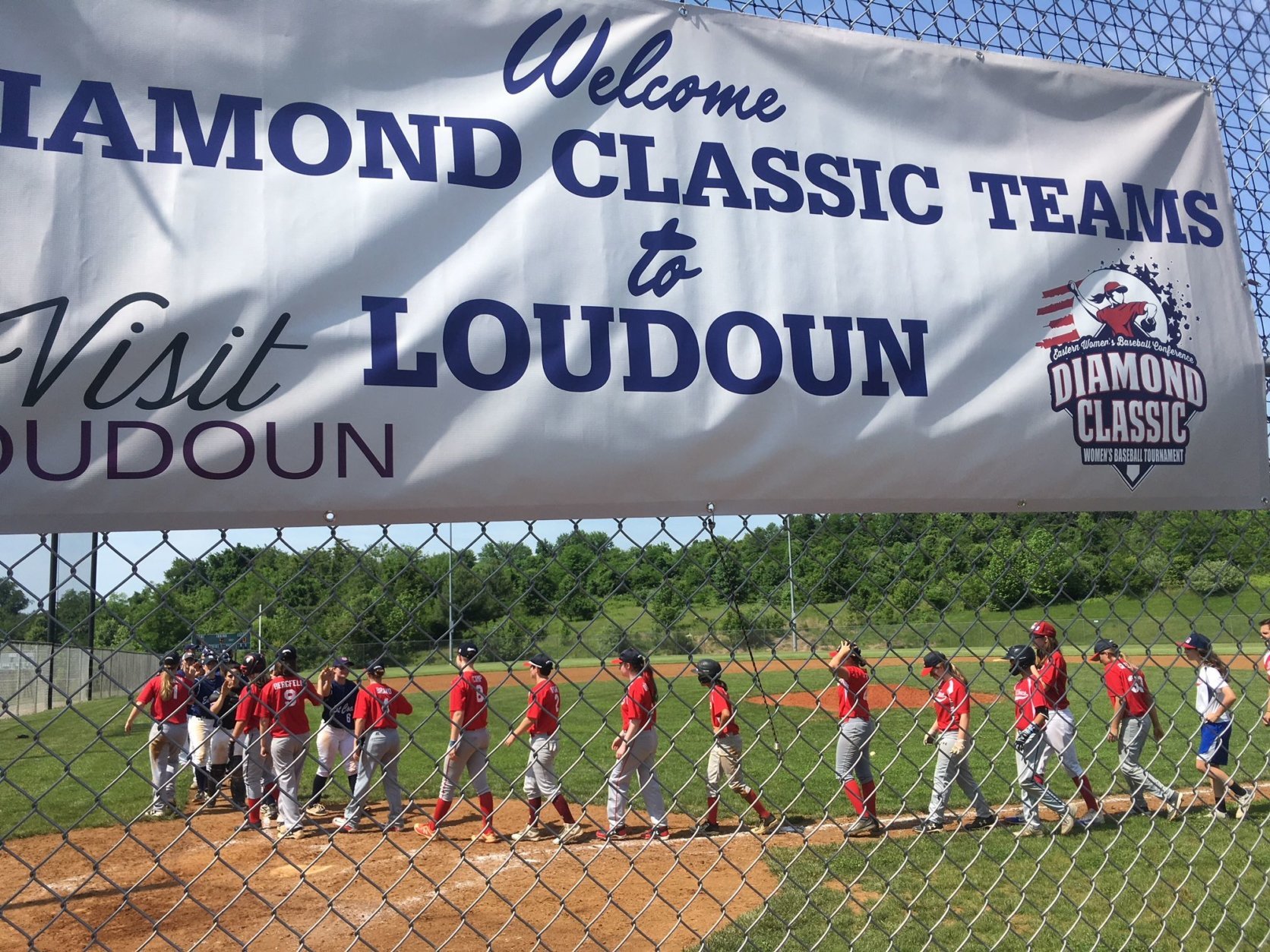
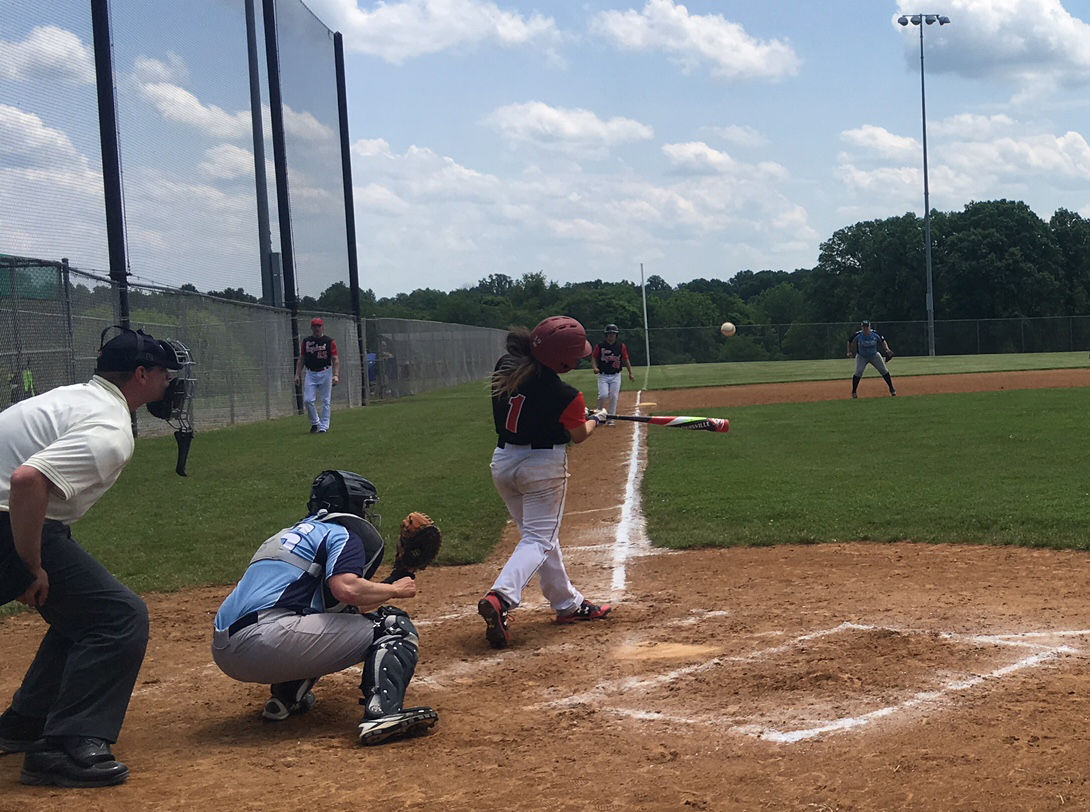
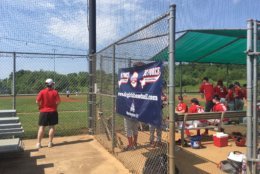
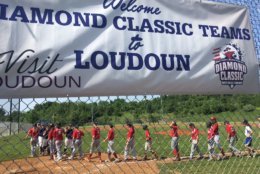
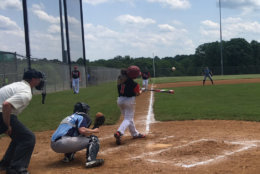
PURCELLVILLE, Va. — Did you know that the Women’s Baseball World Cup starts this week? Did you know that the Women’s Baseball World Cup existed before reading that last sentence?
Baseball will return to the Olympics in Tokyo in 2020, but only for men. There will be softball for women. But all across the country, including here in D.C., the next generation is looking to change that, to get more girls and women involved in not just appreciating, but playing our national pastime.
That’s why the DC Force, along with six other teams from the United States and Canada, assembled out in Purcellville, Virginia this May for the Diamond Classic. When it comes to women’s baseball, though, this is the biggest stage there is, for now.
The yearly tournament offers the chance for girls and women from all over North America to play a competitive tournament against one another, something they aren’t able to do too often throughout the year.
“For us, the weekend’s about bringing our girls out here to play with the women and see that there’s a future for women in the sport, so that they can learn that they can keep playing baseball, and there’s a future for them regardless of the absence of women in professional baseball,” DC Force Head Coach Ava Benach told WTOP.
“They’re all playing baseball all the time, but I think this is their favorite venue, because they’re not alone. And there’s a certain level of camaraderie and support they get, where they don’t have to be the only girl on the team and facing whatever judgment comes from being in that situation.”
Usually when you hear about a girl or a woman playing baseball, the story is the anomaly. We all remember Mo’Ne Davis from the Little League World Series a few years back. And baseball fans may well know the stories of Stacy Piagno and Kelsie Whitmore, who broke in for the independent league Sonoma Stompers in 2016. But the Force practice every Sunday in McLean, Virginia, with members of the adult Eastern Women’s Baseball Conference, drawing players from as far north as the Baltimore suburbs and as far south as Charlottesville.
“I think we’re attracting a whole group of girls that traditionally was only funneled into softball, and now they’re seeing the opportunity,” said Codi Dudley, a longtime EWBC player and now a coach with the Force.
Major League Baseball and USA Baseball have been part of the push, putting on events like the Trailblazer Series and Girls Baseball Breakthrough Series the last couple years, bringing teenage players from around the country together to compete.
Elizabeth Benn is the coordinator of labor, diversity and youth programs at MLB. But before that, she was a pitcher for the Toronto Fusion and later the D.C. Thunder of the EWBC. She moved to New York in 2015, started working with MLB, and was hired into her current role earlier this year.
“We know that there are a ton of girls out there playing at the youth level, but now also having the opportunity to play past Little League and into high school,” said Benn.
But the biggest challenge right now is simply awareness — letting people know that teams like the DC Force are out there. To that end, the Women’s Baseball World Cup won’t even be broadcast on a major sports network, just on YouTube.
“Often when you’re talking to people about girls baseball, people don’t know that it exists,” said Benn. “People don’t know that girls play baseball and women play baseball. And I think just raising that awareness is the main step right now.”
Picture this: having so many girls in baseball that they hardly fit into one frame—and trust us, these 280 girls? They're just the beginning. #growthegame #BFANationals #unstoppable pic.twitter.com/CQ7OEJa2lR
— Baseball For All (@baseballfor_all) August 3, 2018
Girls were not even allowed to play Little League Baseball until 1974. And while breakthroughs like Mo’Ne Davis’s help shine a spotlight on what’s possible at that level, there’s a steep drop-off after Little League. From roughly 100,000 girls playing youth baseball, fewer than 1,200 girls played high school baseball in 2016-17. That’s a higher number than some might expect, but a drop in the bucket compared to the more than 300,000 softball players.
In addition to often finding themselves as the only girl on their team by the end of Little League, girls face increased ostracism from their peers and are offered plenty of other paths of less resistance.
“When we were younger, it wasn’t that big of a deal, but as we got older, it became more discriminating,” said Joanie O’Connell, who plays for the DC Force and her school team at St. Stephen’s & St. Agnes School. “I had an injury and I couldn’t play for [the school team for] a while, and once I recovered, I wasn’t really welcomed back all that much.”
O’Connell has aspirations to play varsity ball, something the DC Force is hoping to see more and more as its players move on to high school. The Under 13 team won the national championship last summer, and the Under 14 as members of its title-winning Under 14 team was a perfect 5-0 at Baseball for All Nationals this month, winning the title game 10-6 over the San Francisco BaySox.
“They all plan on playing as long as they can, which is what you want for anybody, whether they’re Derek Jeter or just a 10-year-old,” said Benach.
Bridging that gap may be the hardest part in keeping girls in the sport and building a more sustainable pipeline.
“When you start finding girls at the 14-15 year-old level, they’re pretty solid ballplayers,” said Benach. “Because there’s a lot of offramps for them to not play baseball anymore.”
While O’Connell has had good support from her family as she has continued to play baseball, she recognizes that’s not how it is everywhere.
“I think it really depends on where you are, because there are a lot of men and boys who are very supportive,” she said. “But a lot of the teams we play in my school league, since they play in an all-boys league, they’re just not really into it.”
That’s why Benach sees the entire enterprise as something much more than just a baseball team.
“I always say we’re a leadership program that plays baseball, and that’s really true,” she said. “When they work with us and they play with us, they become leaders. They become stronger. They’re more articulate. They’re advocates for themselves. Because they’ve had to put up with a lot of baloney to play baseball.”
To learn more about getting involved with DC Force, go to www.DCGirlsBaseball.com.

